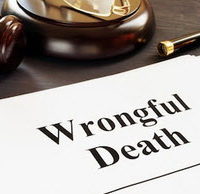The Role Of The Personal Representative In A Florida Wrongful Death Case

There are two types of wrongful death cases in Florida law. One is simply referred to as a wrongful death case, while the other is called a survival action – the latter is brought as an extension of sorts of any claim that the decedent would have had if they had lived. The former is brought on behalf of the decedent’s family, and it is in this type of action where the personal representative of the estate tends to take an active role. If you are the personal representative, or you have questions about the role of the personal representative, it may be a good idea to consult a knowledgeable attorney on the subject.
Must Act In Estate’s Best Interests
The personal representative of a decedent’s estate has several important functions to perform. They must get the probate process going, carrying out functions like informing creditors and taking inventory of the deceased person’s belongings. They must also act in any other transactions for the best interests of the estate, such as in selling real estate. If the family of a deceased person wants to file a wrongful death suit, it is generally the personal representative who must file it under Florida law. This can be difficult in terms of maintaining the duty to act in the estate’s best interests, because very often, the personal representative is a family member, and it is not uncommon for a personal representative to subtly push for suit to be filed if they believe it may enrich them as one of the family members.
If a wrongful death suit is filed, the personal representative must list every family member who has an interest in it, including themselves. Not every family member may recover for wrongful death in Florida; only spouses, children, parents, and any relative (blood or adopted) who was dependent on the decedent for “support and services.” The estate may recover more in certain situations, such as for loss of the decedent’s earnings, or to reimburse the estate for certain medical expenses. A wrongful death case can be filed to recover for specific causes of action, and a personal representative should have a good grasp of what may and may not be recoverable before pushing ahead.
Fiduciary Duty Must Be Upheld
In addition to acting for the estate, the personal representative owes what is called a fiduciary duty to each surviving family member. This means that they must act in an appropriate and impartial manner, providing each family member with what they have been granted by the estate, without any kind of favoritism or dragging their feet. If there is any kind of misappropriation or poor behavior on the part of the personal representative, it is possible to allege a breach of fiduciary duty – but the personal representative’s conduct must be especially egregious for such a claim to pass muster.
In the context of a wrongful death claim, though, this is important to remember, because if damages from a successful claim are not distributed appropriately, it may give rise to a breach of fiduciary duty claim. Fiduciaries are in a position of trust, and to act in such a manner effectively betrays the trust granted to the personal representative as acting for the estate. While most personal representatives conduct themselves in an entirely correct manner, it is important to be aware of red flags so that both your wrongful death case and the decedent’s overall estate can be settled in the most equitable way possible.
Call A Knowledgeable Wrongful Death Attorney
Losing a loved one is a difficult experience for anyone, but when the people and protections you expect to be there are unavailable or otherwise compromised, it can become even more difficult to try and get life back on track. The compassionate Tampa wrongful death attorneys at the Rinaldo Law Group can work with you to keep everyone on the same page as the estate and the case make their way through the courts. Call us today to set up a free consultation.
Resource:
flsenate.gov/Laws/Statutes/2011/733.602












